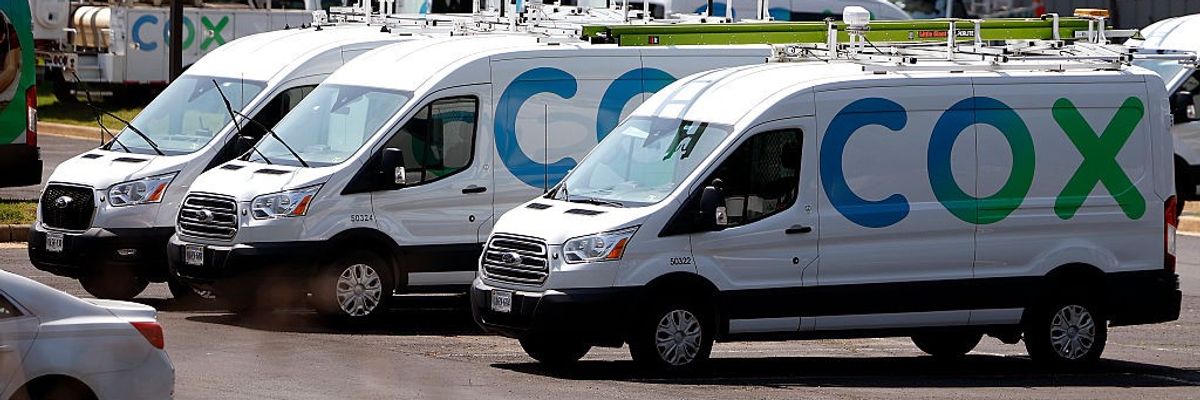Charter Communications and Cox Communications on Friday announced a $34.5 billion merger that—if approved by the Trump administration—would create the largest cable television and broadband provider by subscribers in the United States, sparking a flurry of monopoly concerns.
Charter, which uses the branding Spectrum, is already the second-largest publicly traded cable company, but coupling with the privately held Cox would push it ahead of the current industry leader, Comcast. According to a statement from the cable giants, the combined company would be known as Cox Communications, with Spectrum as the consumer-facing brand.
"The last thing American consumers need is yet another megamerger, as giant internet service providers and cable companies claim they need to get yet-larger to keep up with their industry peers," said John Bergmayer, legal director at the watchdog Public Knowledge, in a Friday statement.
"More consolidation won't fix the cable industry, and introducing new sets of competitive problems is no way to address existing ones," he continued. "As always with cable mergers, the question is as much a loss of opportunities for content creators and programmers to reach an audience, as the loss of choices to subscribers."
As NBC News—whose parent company is Comcast—reported:
On a Friday call with investors, Charter CEO Chris Winfrey called the deal "good for America" and said it will "return jobs from overseas and create new, good-paying customer service and sales careers."
The commentary comes as corporate deal activity has been slower than expected since President Donald Trump took office.
After Trump won the election, Wall Street rallied as many expected the regulatory environment to loosen and the floodgates to open for dealmakers and corporate leaders. But in the months following the election, companies have been contending with other factors rather than dealmaking, such as the Federal Communications Commission's investigation into diversity, equity, and inclusion practices, and the outcome of Trump's tariffs.
The Charter-Cox deal could face scrutiny from the U.S. Department of Justice and the Federal Communications Commission, led by Trump appointee Brendan Carr. Journalist George Chidi said on social media that "in a sane world, the Department of Justice's Antitrust Division and the FCC would block the merger of Cox Communications and Charter."
"Do I need to even complete this thought?" Chidi asked. "For the next three years and six months—assuming we are still having actual elections, it's corporate Christmas."
Public Knowledge's Bergmayer said that "however troubling as this merger might be for competition, at least as troubling is what the companies might agree to in order to persuade the Trump administration and the current FCC to approve the deal."
Trump has a long record of forcefully going after his critics, and experts—including Daniel Stockemer, a professor at Canada's University of Ottawa, in a commentary published earlier this month in the journal Politics & Policy—have warned that with his second term, the president is pushing the United States toward autocracy.
"Will the companies drop cable channels critical of this administration, or agree to censor online content or sites that the administration disapproves of—something the loss of Title II and net neutrality makes all the more likely?" Bergmayer wondered. "Given FCC Chairman Carr's proven willingness to use the agency's power to 'further the president's agenda,' and the willingness of companies to agree to get deals done, what could once be dismissed as paranoid speculation becomes frighteningly plausible."
"From walking back—even reversing—company policies designed to promote diversity and inclusion, to pulling back on news coverage critical of the administration, far too many companies have already put the short-term interest of currying favor with the White House over the public interest, and over the interests of their employees and the communities they serve," he added. "Hopefully that does not happen here."
Emarketer analyst Ross Benes told Reuters that "antitrust concerns are legitimate. But in this era of deregulation, the merger would probably pass as long as they don't upset the president."




